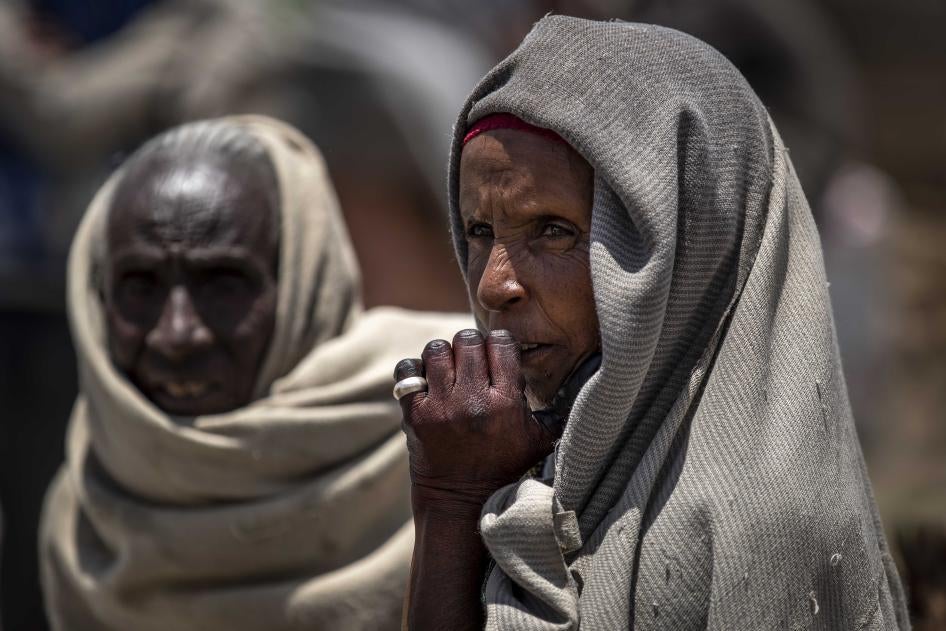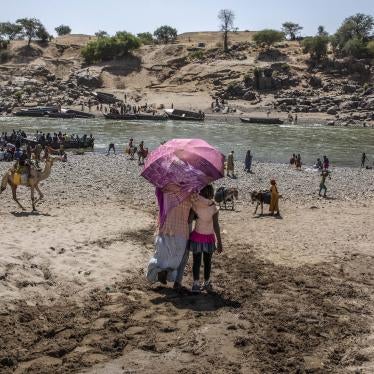The United Nations deputy secretary-general, Amina Mohammed, sent a strong message to warring parties in northern Ethiopia at a news conference last week: a lasting peace can only be achieved with justice and accountability for the atrocities that have been committed in Tigray and nearby regions.
Mohammed made the remarks following a trip to Ethiopia, where she met with Prime Minister Abiy Ahmed and visited the country’s Tigray, Amhara, Afar, and Somali regions.
In November 2020, the Ethiopian government launched military operations in Tigray against the region’s ruling party, the Tigray People’s Liberation Front (TPLF). During the fighting, Ethiopian and allied forces from the Amhara region, and government forces from neighboring Eritrea, have committed serious abuses including massacres, arbitrary detention, widespread sexual violence, and forced displacement of ethnic Tigrayans. Since July, the government imposed an effective siege on Tigray and unlawfully detained thousands of Tigrayans throughout the country.
Tigrayan forces have also committed war crimes, including summary executions, rape, and looting of civilians in the Amhara region and Eritrean refugees in Tigray.
Prior to Mohammed’s remarks, a UN press release had set a very different tone, suggesting a return to normalcy and emphasizing UN development support for Ethiopia.
A reporter asked Mohammed at the UN why there was no mention of atrocities or the treatment of international humanitarian staff during the conflict. Mohamed said she raised both issues and others during her trip, adding: “They cannot achieve any lasting peace without reconciling and being held to account for the atrocities across the country.” It is a crucial message the UN, African Union, and their member countries should take to heart.
In December, the UN Human Rights Council took a significant step towards accountability for war crimes and human rights abuses in Ethiopia by mandating an international investigation. This action stands in sharp contrast to the UN Security Council, which has only issued two press statements and has not included Ethiopia on its official agenda.
It's crucial that the African Union mediator in the conflict, former Nigerian President Olusegun Obasanjo, keeps this in mind during peace negotiations. Ignoring accountability for the many abuses committed during the conflict would only cause grievances to fester and undermine hopes for a durable peace.










